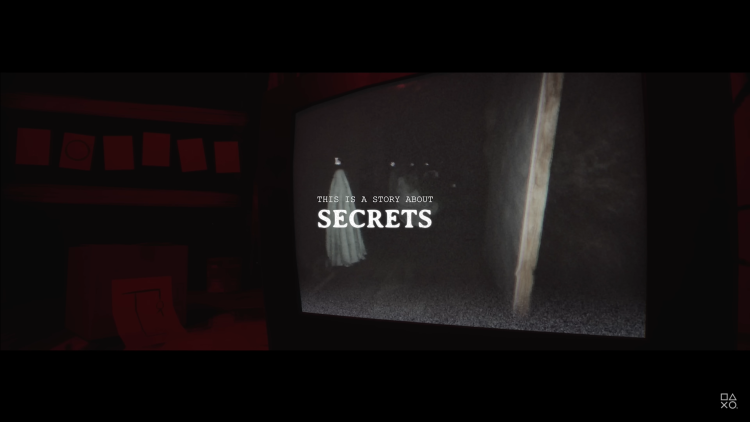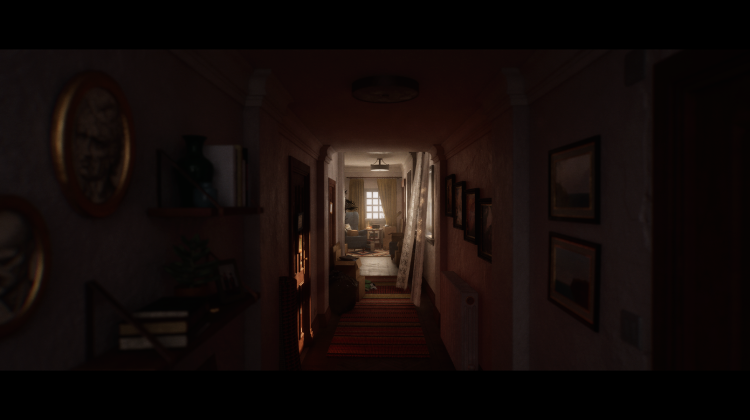Luto Isn’t Just Another P.T. Clone, It’s Stranger, Smarter, and Bolder
A looping haunted house, shifting hallways, a mysterious narrator, and puzzles that can make your head spin—Luto takes horror gaming beyond simple jump scares. While it starts out like another P.T.-inspired experience, it quickly grows into a bold and unpredictable game about mental trauma, perception, and the rules of reality itself. It’s messy, occasionally frustrating, but filled with surprising risks that mostly land, and it may become one of the most memorable indie horror games in years.
The foundation of this post is based on the GameSpot review by Mark Delaney, who explored Luto in depth and found that it offers much more than typical horror tropes.
At a glance, Luto looks like a straight shot down memory lane for anyone who played P.T., the playable teaser that briefly teased the now-canceled Silent Hills. But where most spiritual successors get lost in recreating Kojima’s looping hallway without understanding its depth, Luto goes further. The core loop starts simple: you’re Sam, a man stuck in a mental and physical loop. Each day begins the same—mirror broken, hallway walk, door out—and repeats. But the cycle doesn’t just persist. It spirals.
The game uses that repetitive setup as a way to introduce increasingly strange events, surreal visuals, and a story that warps reality. And then it throws in something weird: a narrator. At first, the upbeat British voice completely undercuts the tension. It sounds like something out of The Stanley Parable, commenting on your every move. Initially, it feels like a mistake. But the game is playing the long game here.
“Why did they spoil its tense atmosphere with this chatterbox?”
That was the first reaction from the reviewer, and a fair one. But this isn’t just flavor text. The narrator has a purpose, and when it hits, it repositions the entire tone of the game. The voice isn’t there to hold your hand. It’s part of a wider structure that eventually shifts and reveals its true role, which won’t be spoiled here.

One of Luto’s biggest strengths is how it plays with expectation. Hallways transform into desert caverns. Rooms dissolve like broken code. At one point, it even screens Night of the Living Dead in full, only to flat-out tell you there’s no reward for watching it. That kind of fourth-wall humor is more than gimmickry. It fits into a larger theme: Luto doesn’t want you to relax. It wants to disorient and question how much control you really have.
Where Luto draws inspiration from P.T., it ends up closer in tone and concept to House of Leaves, the cult novel where a family’s house hides impossible spaces and dimensions. Delaney also compares it to Hideo Kojima’s flair, especially when Luto pulls off a Psycho Mantis-like moment that’s so clever it made him pause and text his boss.
This isn’t just ambition. For a first game from Broken Bird Games, Luto reaches high, and while not everything lands, the scale of what it tries is impressive. The tone is slippery. The visuals change. The rules bend. One moment you’re walking a hallway. The next reality collapses.

Not all of it works smoothly. The puzzles, in particular, can be a drag. Some are so cryptic that they suck the tension out of a scene. Delaney points to one moment where he had to find a key while loud banging echoed through a room. The sound design started scary, but turned into background noise after 10 minutes of searching.
That kind of pacing hiccup pops up more than once. It’s not that the puzzles are broken—they’re just deeply opaque. One example involved finding a phone number, but even that shifted between patches, making the solution inconsistent. You need to think weird, break assumptions, and lean into trial and error.
“If you let yourself think in complicated ways, you'll soon be speaking Luto's language.”
Once players adapt to that mindset, the puzzles do start to make more sense. Later segments become easier to navigate—not because the game gets easier, but because the player begins to understand how the developers think.

In terms of scares, Luto frontloads its fear. The early parts deliver some traditional haunted house chills, but the tension fades once you realize the threats aren’t going to hurt you. There’s no combat, no stealth. If you’ve played horror-adventure games before, you’ll recognize this structure. You’re not in real danger. It’s more of a ride—like a haunted hayride that wants you to watch closely, not run away.
But where it lacks in raw terror, it makes up for in atmosphere. Even when the danger feels staged, the style holds up. The presentation remains unnerving enough to carry scenes forward, even without the risk of failure.
The final act, though, is where Luto fully goes off the rails—and in a good way. According to the review, the last third of the game is completely unpredictable. It gets so experimental and metaphor-heavy that it might lose some players, but for those willing to go along, it delivers something few games even attempt. It’s not just another ghost story. It’s a narrative experiment.
At the end of the six or so hours, Luto may leave some players confused or even annoyed. But it’s not a game designed to please everyone. It doesn’t aim for comfort or clear answers. It commits to an experience that’s personal, surreal, and sometimes messy. It dares to make bold choices, even when they don’t all work.
For horror fans especially, the game offers something rare: a story that isn’t just about being scared, but about feeling lost, stuck, and pushed to think differently. As a first game, it signals that Broken Bird Games is one to watch.
Luto might not be the final form of the dream that P.T. started, but it’s closer than most. And maybe that’s the point—it’s not about copying a classic. It’s about finding new horror in unexpected places.

Comments